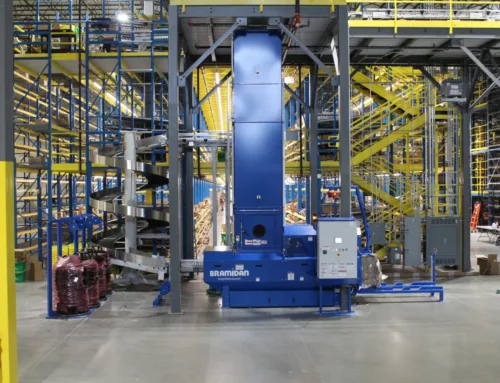
Choosing the right commercial dough mixer is crucial for any bakery aiming for consistent quality and efficiency. Many bakery owners struggle with selecting equipment that meets their production needs and budget. In this article, I will guide you through the essential features to consider, the different types of dough mixers available, and the importance of evaluating user experiences. By the end of this post, you will have the knowledge to make an informed decision about your bakery equipment investment. Need further assistance? Don’t hesitate to contact us at End2End Logix for expert advice on all bakery and deli equipment.
Understanding the Importance of Commercial Dough Mixers for Bakeries

In my experience as a foodservice equipment consultant, including deli equipment, the role of commercial dough mixers in bakeries cannot be overstated. These machines streamline the preparation of dough, ensuring consistency in texture and flavor, which is vital for high-quality products. Whether crafting bread or prepping icing for cakes, a dependable mixer is fundamental to achieving outstanding results. For more information, contact us.
The choice of mixer directly impacts the operational efficiency of any bakery. A spiral mixer, for example, is designed to handle large quantities of dough, allowing for faster production while maintaining the dough’s integrity. Investing in high-quality refrigeration parts, display freezers, and deli equipment can further enhance the durability and functionality of your equipment, ultimately leading to a more sustainable kitchen environment. For more information, contact us.
Understanding your specific needs helps when choosing the ideal commercial dough mixer. If space is limited, a countertop mixer might be more suitable without sacrificing performance. With the right deli equipment, you can significantly improve your bakery’s productivity and the quality of your baked goods. Contact us to explore our display freezers:
- Importance of consistency in baking.
- Operational efficiency with the right mixer.
- Consideration of equipment sustainability.
A good dough mixer is more than just a tool; it’s the backbone of every successful bakery. Let’s look closely at the essential features that will help you choose the right one for your needs.
Identifying Key Features to Consider in a Dough Mixer

When selecting a commercial dough mixer, several key features are essential to ensure optimal performance. I will discuss motor power and performance specifications, which directly influence the energy efficiency of the mixer. We’ll also examine dough capacity and bowl size, allowing for effective batch preparation. Mixer speed variability will be highlighted to illustrate its importance in achieving perfect batter consistency. Finally, we’ll review construction material and durability, pivotal for the longevity of your deli equipment investment. Contact us.
Motor Power and Performance Specifications
When evaluating motor power and performance specifications in a commercial baking mixer, I emphasize the significance of selecting a spiral mixer commercial model that meets your operational demands and integrates well with deli equipment. A higher motor power translates to efficient mixing, which is essential for developing gluten in flour and achieving the right dough consistency. Additionally, understanding how friction affects the dough‘s temperature during mixing can help optimize your refrigeration needs, such as display freezers, ensuring that your ingredients remain within the ideal temperature range for fermentation.
Dough Capacity and Bowl Size
Understanding dough capacity and bowl size is crucial when selecting a commercial dough mixer from end2end logix for your bakery. A larger bowl size accommodates significant batches, which is necessary for high-volume production environments, particularly when using deli equipment like the Hobart spiral mixer. This innovation not only allows for efficient mixing but also helps maintain the desired consistency and quality of dough, ensuring that your products meet customer expectations across the board.
Mixer Speed Variability
Mixer speed variability is a crucial feature to consider when selecting a commercial dough mixer for your bakery. Different recipes, particularly those for pastries, require specific mixing speeds to develop the desired texture without risking overmixing. For instance, a mixer with adjustable gears allows me to customize the speed for various tasks, ensuring that my dough is mixed just right for optimal results. When using stainless steel equipment, I can also be assured of its durability and ease of maintenance, which is essential for high-volume production environments like bakeries:
- Customization for different pastry recipes.
- Adjustable gears to manage mixing speeds.
- Durability of stainless steel equipment.
Construction Material and Durability
When selecting a commercial dough mixer for your bakery, the construction material is a critical factor that influences durability and performance. I recommend looking for mixers made with high-quality stainless steel, as this material withstands the rigors of regular use while ensuring easy maintenance and hygiene—a must in any professional kitchen. For bakeries in the Middle East or other regions, where high temperatures can impact kneading processes, investing in a mixer that features robust steel construction will ensure consistent results, whether you’re preparing dough for artisan bread or delicate pastries meant for the oven.
Now that we’ve covered the essential features to look for in a dough mixer, it’s time to examine the various types available. Each one offers unique advantages that can shape your baking process, so let’s find the right fit for your kitchen.
Comparing Different Types of Dough Mixers Available

In evaluating the right commercial dough mixer for bakeries, it’s essential to compare various types available, such as stand mixers and spiral mixers. I’ll explain the functionality of planetary mixers and provide an overview of twin-shaft mixers. Finally, I will help you decide between planetary and spiral mixers based on your specific mixing needs, including doughnut and sausage preparation, while emphasizing the importance of sanitation.
Stand Mixers vs. Spiral Mixers
When considering equipment for your bakery, I find it essential to weigh the differences between stand mixers and spiral mixers. Stand mixers are versatile and can effectively handle a variety of tasks, making them suitable for bakers who require functionalities beyond just dough preparation, such as whisking and blending. On the other hand, spiral mixers are specifically designed for dough, efficiently developing gluten while mixing large batches, which can significantly boost productivity in high-volume settings.
Planetary Mixers Explained
Planetary mixers are a versatile option for bakeries, particularly suitable for tasks that involve various mixing methods. These machines excel at whipping, beating, and mixing, making them ideal for preparing cookie dough and batters for cakes. In my experience, they provide the flexibility required to meet diverse customer demands within the foodservice industry, ensuring that bakers can deliver quality products consistently.
Twin-Shaft Mixers Overview
Twin-shaft mixers are an effective choice for bakeries focused on producing consistent and high-quality dough. With their unique design, these mixers utilize two horizontal shafts that allow for thorough mixing of ingredients, resulting in optimal dough development. This is particularly advantageous for bakeries handling large batches and requiring uniform results, whether preparing bread or specialty items:
- Efficient mixing for large batches.
- Consistent results for various dough types.
- Durable design that withstands heavy use.
Planetary and Spiral Mixers: Which One Fits Your Needs?
When evaluating whether a planetary or spiral mixer is right for your bakery, consider the specific applications you’ll be handling. Planetary mixers excel in versatility, allowing me to easily switch between tasks such as mixing, whipping, and beating, making them ideal for bakeries that produce a variety of items, from cookies to cream. In contrast, spiral mixers are purpose-built for dough preparation, efficiently mixing large batches while developing gluten, which is essential for bread and other yeast-based products:
- Planetary mixers are suitable for various tasks, ensuring flexibility for diverse recipes.
- Spiral mixers are designed for high-volume dough production, ensuring quality and consistency.
- Assess your bakery’s production needs to choose the most effective mixer type.
Choosing the right dough mixer involves more than just features and specifications. As we turn to budget considerations, we’ll uncover how your investment can influence the quality and efficiency of your bakery operations.
Evaluating Budget Considerations and Investment Value
When selecting a commercial dough mixer, it’s essential to consider initial purchase costs versus long-term savings, as well as ongoing maintenance and repair expenses. I will discuss how to analyze ROI in bakery operations while exploring various financing options available for your investment. These factors are crucial for ensuring that your equipment serves your business effectively for years to come.
Initial Purchase Costs vs. Long-Term Savings
When I evaluate the initial purchase costs of a commercial dough mixer, it is essential to consider the long-term savings the equipment can provide. While investing in a high-quality mixer may involve a significant upfront expense, the benefits often include increased productivity and reduced labor costs, which can yield significant returns over time. I recommend assessing the total cost of ownership, factoring in potential maintenance expenses and the mixer’s lifespan, as this analysis will guide you in making a financially sound decision for your bakery:
- Analyze the upfront costs in relation to your bakery’s budget.
- Consider productivity improvements and their impact on profitability.
- Evaluate the durability of equipment to minimize long-term maintenance expenses.
Maintenance and Repair Costs
When it comes to selecting a commercial dough mixer, understanding the potential maintenance and repair costs is vital for making an informed investment. I recommend budgeting for regular maintenance to keep the equipment running efficiently, as neglecting upkeep can lead to costly repairs and downtime. Observing the manufacturer’s guidelines regarding maintenance schedules can help extend the lifespan of your mixer, ensuring that it continues to meet the demands of your bakery:
- Factor in the cost of parts and labor for repairs.
- Establish a maintenance schedule to prevent unexpected issues.
- Evaluate warranty options that cover repair costs to minimize future expenses.
Analyzing ROI for Bakery Operations
When analyzing the return on investment (ROI) for bakery operations, I recommend meticulously assessing how a commercial dough mixer can enhance productivity and reduce labor costs. A well-chosen mixer not only streamlines dough preparation but also significantly increases batch output, leading to higher profitability. For example, if a mixer improves production efficiency, the savings in time and labor can quickly justify the initial purchase expense, helping bakery owners maintain a healthy bottom line.
- Assess productivity improvements impacted by the mixer.
- Evaluate the relationship between reduced labor costs and profitability.
- Consider how faster batch output contributes to overall revenue.
Financing Options for Commercial Dough Mixers
When it comes to financing options for commercial dough mixers, I often recommend exploring various avenues to make this crucial investment more manageable. Many bakeries benefit from leasing equipment, which allows them to use high-quality mixers while making smaller monthly payments. Alternatively, securing a loan can provide the funds needed for an upfront purchase, allowing for long-term savings and productivity gains that justify the initial cost.
- Consider leasing vs. buying for flexibility.
- Explore loan opportunities for upfront purchases.
- Focus on long-term savings and productivity gains.
You’ve weighed the costs and seen the potential gains. Now, let’s see what others have to say about their choices and the lessons they’ve learned.
Reading Reviews and Learning From User Experiences

Finding trusted sources for reviews is vital when choosing a commercial dough mixer for my bakery. I focus on analyzing consumer feedback, which provides insights into reliability and performance. I also consider case studies from successful bakeries to understand practical applications. Recommendations from industry experts further guide my decision, ensuring my equipment meets operational goals effectively.
Finding Trusted Sources for Reviews
To make an informed decision when choosing a commercial dough mixer for my bakery, I prioritize finding trusted sources for reviews. I focus on user feedback from platforms dedicated to restaurant and bakery equipment, as these insights highlight real-world performance and reliability. Additionally, I explore recommendations from industry experts and consult case studies from successful bakeries that outline their experiences with specific mixers, which helps me gauge the effectiveness of different options:
- Utilize review platforms for genuine user feedback.
- Seek expert recommendations within the foodservice industry.
- Refer to case studies to understand practical applications.
Analyzing Consumer Feedback
When analyzing consumer feedback on commercial dough mixers, I focus on understanding the experiences and challenges faced by other bakery owners. This feedback often highlights crucial aspects, such as ease of use, durability, and mixing efficiency, which directly relate to daily operations. By examining reviews and ratings, I can make informed choices that align with my bakery’s specific needs, ensuring that the mixer I select contributes positively to my production workflow and product quality.
Case Studies of Successful Bakeries
In my experience, analyzing case studies from successful bakeries can provide valuable insights into the decision-making process for selecting a commercial dough mixer. For instance, I recently consulted with a bakery that saw significant improvements in efficiency after opting for a spiral mixer designed for heavy-duty use. Their ability to produce larger batches without compromising dough quality not only satisfied customer demands but also bolstered their reputation in a competitive market.
Recommendations From Industry Experts
In my role as a foodservice equipment consultant, I often turn to recommendations from industry experts when choosing a commercial dough mixer. Experienced professionals frequently highlight the importance of selecting mixers that not only deliver reliable performance but also facilitate ease of use and maintenance. For example, several bakers I consulted emphasized that investing in reputable brands with solid support and warranty options can greatly enhance long-term satisfaction with the equipment:
- Seek insights from trusted industry peers.
- Consider brand reputation and support services.
- Evaluate warranty options for long-term security.
User reviews offer insights, but the final choice rests in your hands. Let’s examine what you truly need to make your dough mixer a vital part of your kitchen.
Making the Final Decision on Your Dough Mixer
When finalizing my decision on a commercial dough mixer, I focus on several crucial factors. Conducting on-site demonstrations allows me to see the mixer in action, ensuring it meets my expectations. I prioritize my bakery’s specific mixing needs and take time to understand warranties and support options, which can affect long-term satisfaction. Finally, sealing the deal with a reliable supplier ensures I receive quality service and equipment.
Conducting on-Site Demonstrations
Conducting on-site demonstrations is a critical step in selecting the right commercial dough mixer for my bakery. I often arrange for demonstrations to observe the equipment in action, which allows me to evaluate its performance directly against my specific production needs. During these demonstrations, I pay close attention to mixing consistency, ease of operation, and overall durability, providing me with a clear picture of how the mixer will function in a high-volume environment.
Prioritizing Your Bakery’s Specific Needs
When prioritizing my bakery’s specific needs, I focus on factors such as production volume, the types of dough I prepare, and the available space in my kitchen. For instance, if I specialize in high-demand items like artisan bread, selecting a spiral mixer with adequate capacity ensures that I can handle large batches efficiently. Understanding these unique requirements helps me make an informed choice, ultimately leading to improved workflow and product consistency in my operations.
Understanding Warranties and Support
When selecting a commercial dough mixer, understanding the warranty and support options available is paramount. I recommend thoroughly reviewing the warranty terms to ensure they cover necessary repairs and services, which can significantly reduce long-term costs. Additionally, choosing a supplier that offers robust customer support ensures I can access assistance and spare parts when needed, keeping my bakery operations running smoothly and efficiently.
Sealing the Deal With the Best Supplier
Choosing the right supplier is essential for securing a reliable commercial dough mixer that meets my bakery’s needs. I prioritize working with suppliers who offer not only quality equipment but also robust customer support and comprehensive warranty options. This ensures that if any issues arise, I can receive prompt assistance, minimizing downtime and keeping my operations efficient:
- Research potential suppliers and their reputations.
- Ask about warranty options and coverage for repairs.
- Evaluate customer support availability and responsiveness.
Conclusion
Selecting the right commercial dough mixer is crucial for any bakery aiming to enhance productivity and maintain high-quality output. Prioritizing features such as motor power, dough capacity, and construction material ensures you make a well-informed investment. By understanding your specific needs and evaluating various mixer types, you can significantly streamline operations while meeting customer demands effectively. Ultimately, the right dough mixer not only supports your production goals but also contributes to your bakery’s long-term success.
Share This Story, Choose Your Platform!
Get In Touch
Phone: (847) 722-6942
Email: sales@end2endlogix.com
Web: end2endlogix.com


